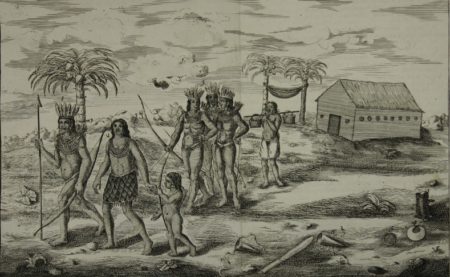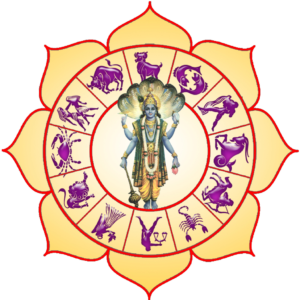 Kāraka is derived from the words kara meaning (1) the hand which is the body part for enterprise and action or (2) to do indicating the action involved in doing something. Ka refers to prajāpati as the creator and indicates material manifestation.
Kāraka is derived from the words kara meaning (1) the hand which is the body part for enterprise and action or (2) to do indicating the action involved in doing something. Ka refers to prajāpati as the creator and indicates material manifestation.
Houses as Kāraka
Based on the first meaning, kāraka refers to the divisions of the sky as signs, houses or mansions created by the movements of the Sun, Moon and other planets that signify the events and different activities of the entity. These are called ‘bhāva kāraka’. Simply the bhava kāraka are those who have a kind of final say related to some matter that pertains to them.
For example, the entire zodiac refers to different parts of the body called ‘tanu’ in Sanskrit, yet the ‘tanu kāraka’ is Lagna as the ascendant has the principal control over the body. If the lagna is weak or afflicted then the body shall suffer while a strong lagna is very conducive for a healthy and strong body. Similarly if the daśā is not conducive for the lagna it shall cause ill health and physical suffering even if the planet be well placed in the chart.
In this manner we have to take a fresh look at the various significations brought out by Parāśara in Chapter-3 where the names of the bhāva bringing out their significations are taught. Have you compiled a list of bhāva significations? If not then this would be a good time to start this review.
The twelve astrology houses have twelve principal bhava kāraka or graha-kāraka for the bhāva, besides there are some secondary ones.
| Bhāva | Kāraka | Bhāva | Kāraka |
| 1 | Sun | 7 | Venus |
| 2 | Jupiter | 8 | Saturn |
| 3 | Mars | 9 | Jupiter |
| 4 | Moon | 10 | Mercury |
| 5 | Jupiter | 11 | Jupiter |
| 6 | Saturn | 12 | Saturn |
Based on the second meaning above, Kāraka refers to graha and upagraha which are jointly referred to as planetary significators as having the final say or acting on behalf of the universe (or god) in the affairs of any entity – living or non-living. These are called ‘graha kāraka’.
For example, the Sun is naisargika ‘deha-kāraka’ and becomes the principal significator for the body. Now we can easily see how the Sun and Lagna map into each other as minding the matters related to the body.
Deeper Meaning
We now know that the word kāraka means ‘doer’ or ‘actor’ in the sense of a natural lord of a certain matter. It indicates one who is finally responsible for the state of affairs pertaining to a subject. The houses as bhāva-kāraka govern the subject (kāraka) and the planets as graha-kāraka decide the fructification of matters related to the subject. But on whose behalf are they doing all this? Whose bidding do these kāraka obey? This is where we realise that there is a higher force that must be dictating terms to these kāraka to do its bidding. Is this what we know as God or is this just another higher self?



